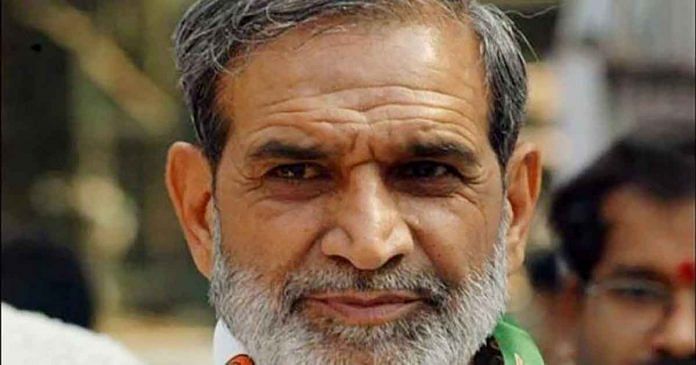Why did a Delhi trial court clear Congress leader Sajjan Kumar in the 1984 anti-Sikh riots case? We take a closer look at the judgment.
New Delhi: The Delhi high court Monday sentenced Congress leader Sajjan Kumar to life in the 1984 anti-Sikh riots case for “criminal conspiracy to commit murder”.
However, five years ago, a Delhi trial court had acquitted him in the same case on the grounds that he deserved the “benefit of doubt” as the testimonies of the key witness – Jagdish Kaur – were inconsistent.
The court, though, had accepted Kaur’s testimony against the other three accused, saying that her statement had a “ring of truth” and was consistent.
The court observed that Kaur did not specifically mention Kumar’s role in her statement given to the Justice Ranganath Misra Commission in 1985. However, in 2002, almost two decades later, Kaur stated in a court affidavit that Kumar’s role was “not to be brushed aside”.
ThePrint looks at the conclusions drawn by the trial court on 30 April, 2013, that led to Kumar’s acquittal.
Also read: The 4 who never gave up the fight, and succeeded in putting Sajjan Kumar in jail
‘Kaur’s statement hearsay’
The trial court observed that Jagdish Kaur’s statement about Kumar inciting a mob at Mandir Mangalpuri, where the homes of Sikhs were attacked on the morning of 2 November, 1984, appeared to be “hearsay”.
The court observed that if Kaur witnessed Kumar speaking those words, then she should have disclosed it before the Justice Nanavati Commission.
“Jagdish Kaur named Kumar for the first time after a long period in her statement under Section 161 CrPC which was recorded sometime in 2007. When her statement initially was recorded in 1985, she had not named Kumar at all,” the court observed.
“If A-1 (Sajjan Kumar) was involved in the incident, then in the report submitted (by) Kaur to the police on 12th November, 1984, his role ought to have been mentioned,” the court observed.
The court also noted that it was for the first time in 23 years that another public witness, Jagsher Singh, named Kumar. The court raised doubts as to the veracity of Singh’s claims.
No role attributed to Kumar
Referring to Kaur’s statement to the Justice Ranganath Misra Commission, the court said that apart from conspiring and abetting, no other act or role had been attributed to Kumar.
“In her affidavit before the Justice Ranganath Misra Commission, Kaur did not mention Kumar in any manner, although the other accused had been named. In the circumstances, the testimony of Kaur that she had heard and seen Kumar addressing a gathering with provocative and instigating utterances was not acceptable and believable,” the court observed.
After recording the said findings in its judgment, the trial court proceeded to acquit Kumar of all charges while convicting the other accused.
Also read: Sajjan Kumar, the powerful Jat leader who remained untouched by 1984 riots for 25 years
Police blamed
In its judgment, the trial court also noted the role law enforcement agencies played. It observed that though, according to the law, each death should have been registered and investigated as separate cases, police had clubbed all complaints in one FIR registered in Delhi Cantonment.
“The intention of the police was clear from the cyclostyled report which was submitted to the SHO in which the claim on account of the assessed damage to the house was stated as Rs. 45,000/- and to the household articles was stated as Rs.1,25,000/-. It appeared as though the police had convinced victims that the killing of their family members was merely an opportunity to bargain for monetary relief. This was another reflection of the police’s total inaction,” the judgment stated.



